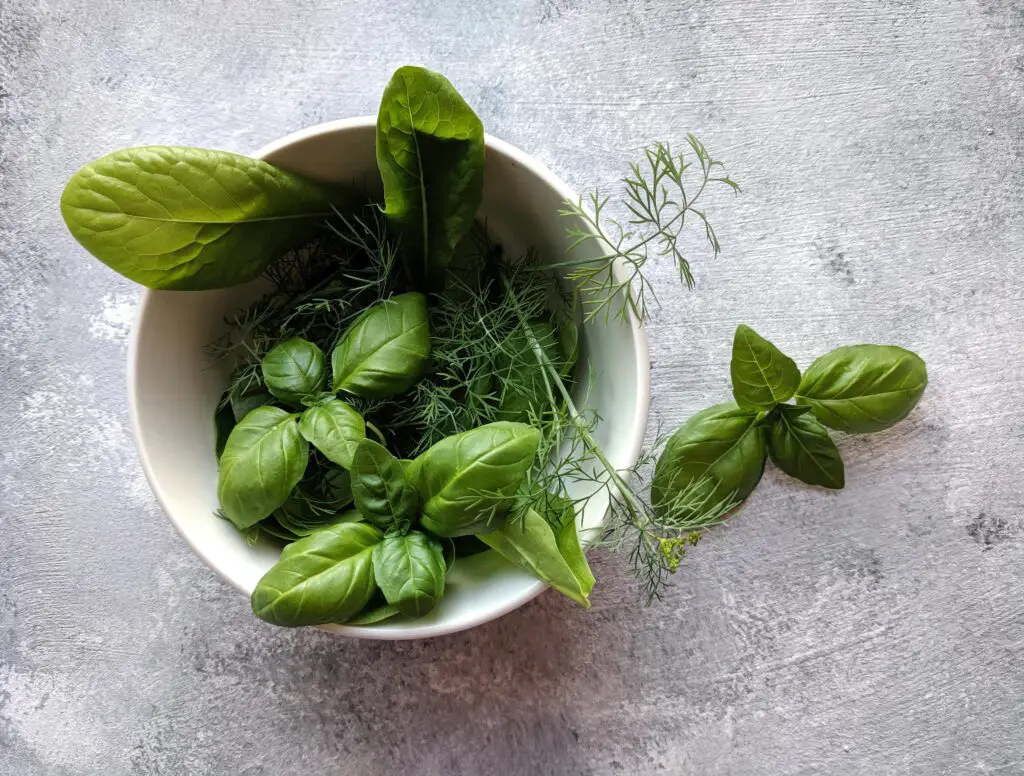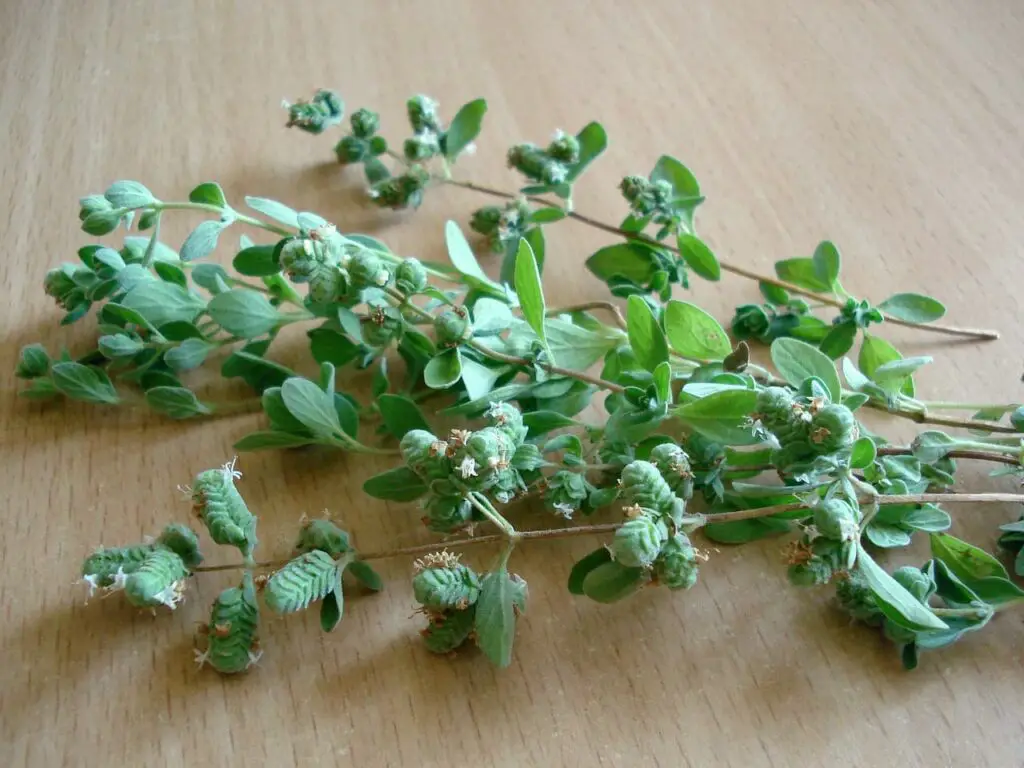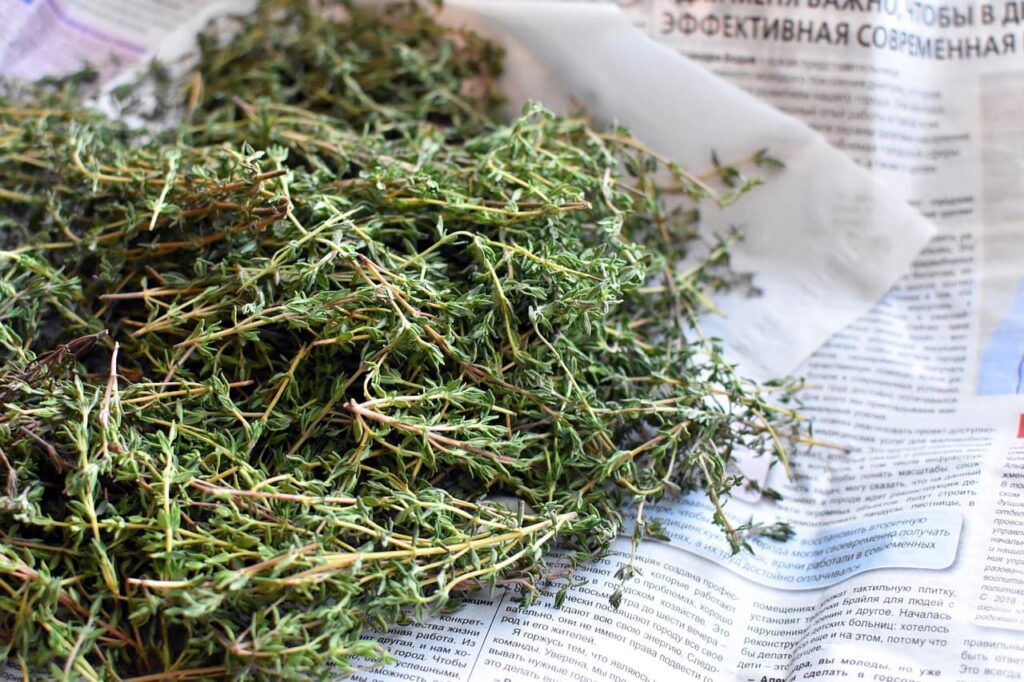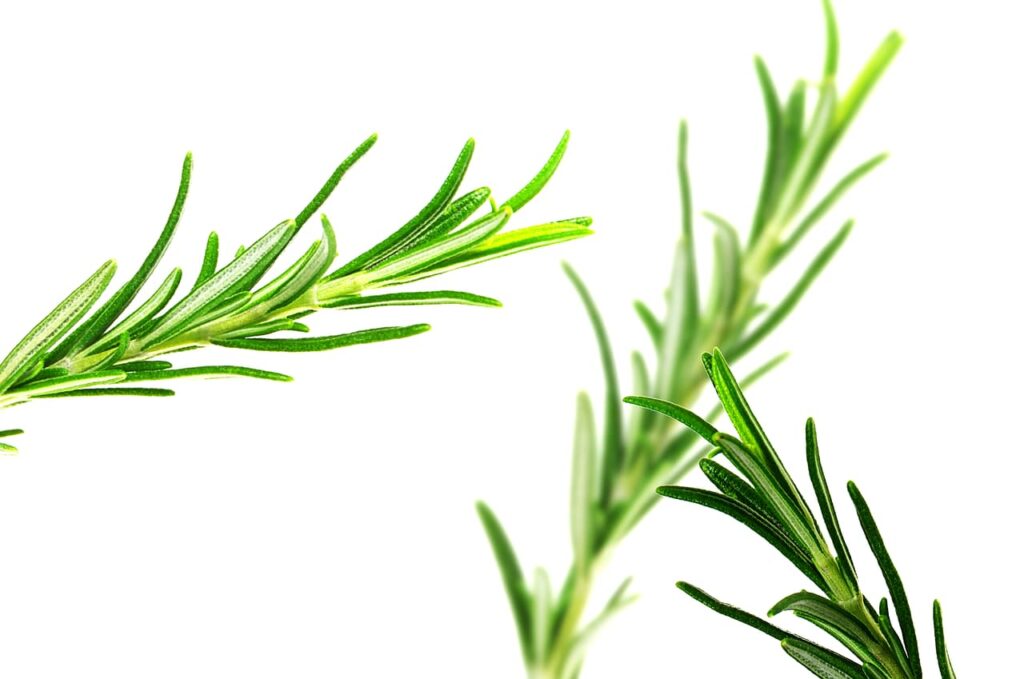21 Best Mediterranean Herbs & Spices to Elevate Your Cooking
Here’s a guide to 21 Mediterranean herbs and spices. The Mediterranean diet is celebrated not only for its health benefits but also for its vibrant and flavorful cuisine. At the heart of this culinary tradition are the herbs and spices that infuse dishes with their distinct aromas and tastes. From the earthy richness of oregano to the bright zest of lemon verbena, these essential ingredients bring both flavor and nutrition to the table.
The Mediterranean region is renowned for its vibrant cuisine, which owes much of its flavor to various herbs and spices. These aromatic ingredients enhance the taste of dishes and offer numerous health benefits.
Read more about Mediterranean Diet For Beginners: Ultimate Guide to Mediterranean Cooking
Mediterranean Herbs
Basil

Known for its sweet and slightly peppery flavor, basil is one of the most popular mediterranean herbs and is essential in Mediterranean dishes like pesto, caprese salad, and pasta sauces. Basil, often called the “king of herbs,” is a cornerstone of the Mediterranean diet, celebrated for its fragrant aroma, vibrant green leaves, and versatile culinary uses. Native to regions around the Mediterranean and Asia, basil has been cultivated for centuries as both a flavoring agent and a medicinal herb.
In the Mediterranean diet, basil is more than a seasoning—it emphasizes fresh, wholesome ingredients that enhance meals’ flavor and health benefits. Rich in antioxidants, vitamins, and essential oils, basil supports heart health, reduces inflammation, and promotes digestion, aligning perfectly with the diet’s focus on balanced, nutrient-dense foods. Whether used fresh as a garnish or blended into a sauce, basil is a versatile herb that captures the essence of Mediterranean cuisine.
Use fresh basil leaves in dishes like Caprese Skewers, Caprese Pasta Salad, Mediterranean Vegetable Soup Recipe and Zucchini Pizza
Oregano

A staple in Greek and Italian cooking, oregano is earthy and slightly bitter. It pairs well with tomatoes, meats, and vegetables. Oregano, one of the most popular mediterranean herbs , is prized for its robust flavor and numerous health benefits. Native to the Mediterranean region, oregano has been used for centuries to enhance the taste of dishes ranging from grilled meats to fresh salads.
Its slightly peppery, earthy aroma adds depth to traditional recipes like Greek salads, Italian pasta sauces, and marinades. Beyond its culinary appeal, oregano is rich in antioxidants, vitamins, and antimicrobial compounds, making it a flavorful way to support overall health. This versatile herb exemplifies the Mediterranean approach to blending taste and nutrition effortlessly.
Use oregano in dishes like Greek Lamb Meatloaf, Mediterranean Vegetable Soup Recipe , and Zucchini Chips
Thyme

Thyme, a fragrant herb native to the Mediterranean region, is a staple in Mediterranean cuisine. Its earthy, slightly minty flavor pairs beautifully with a wide range of dishes, from roasted vegetables and grilled meats to soups and marinades. Rich in antioxidants and essential oils, thyme is not only prized for its culinary versatility but also for its potential health benefits, such as supporting digestion and boosting immunity. Whether used fresh or dried, thyme enhances the flavor profile of Mediterranean dishes while contributing to the region’s reputation for healthy and flavorful eating.
Use thyme in dishes like Mediterranean Vegetable Soup Recipe, and Sheet Pan Chicken With Peppers and Onions.
Rosemary

Rosemary, an aromatic herb native to the Mediterranean region, is a cornerstone of Mediterranean cuisine. Known for its robust, pine-like flavor and woody aroma, rosemary is often used to season roasted meats, vegetables, and bread and infuse oils and marinades. Beyond its culinary appeal, rosemary is celebrated for its health benefits, including its potential to improve memory, support digestion, and provide antioxidants. This versatile herb embodies the Mediterranean diet’s focus on natural, flavorful ingredients nourishing the body and soul.
This robust herb has a pine-like flavor and is ideal for roasting meats, potatoes, and vegetables, like Baked Cod with Roasted Potatoes and a Side Salad
More Mediterranean Herbs
The most used and popular Mediterranean herbs is arguably parsley. This versatile herb is a staple in many Mediterranean cuisines, valued for its fresh, slightly peppery flavor and ability to complement a wide range of dishes. It’s commonly used in:
- Garnishes: Adding color and a hint of flavor to dishes.
- Salads: A primary ingredient in tabbouleh, a classic Middle Eastern salad.
- Sauces: Essential in chimichurri, salsa verde, and various Mediterranean dips.
- Soups and Stews: Enhancing depth and freshness.
Parsley comes in two main varieties: flat-leaf parsley (Italian parsley), preferred for its robust flavor, and curly parsley, often used for decorative purposes.
While parsley is widely popular, other mediterranean herbs like oregano, basil, and mint are also highly significant in Mediterranean cooking, with oregano being particularly associated with Italian and Greek cuisines. These herbs often work together to define the distinct, fresh, and aromatic flavors of the region.
Use parsley in dishes like Greek Meatloaf with Eggs Recipe , Creamy Spinach Soup Recipe
Mint: Refreshing and aromatic, mint is popular among mediterranean herbs , is a key ingredient in Mediterranean beverages, salads, and savory dishes. It pairs well with lamb, yogurt, and citrus, providing a cooling contrast in recipes.
Use Mint in dishes like Greek Meatloaf Tzatziki Sauce
Cilantro: With its citrusy undertones, cilantro (or coriander leaves) is popular in Mediterranean and Middle Eastern cuisines. It’s often used in salads, marinades, and dips like hummus to add a distinctive flavor.
Use Cilantro in dishes like Moroccan Harira Lentil, Chickpea and Tomato Soup
Dill: Dill’s feathery leaves bring a slightly tangy and sweet flavor, making it perfect for seafood, yogurt sauces, and pickling. It’s a beloved herb in Greek and Turkish cooking.
Use Dill in dishes like Cucumber Bites Smoked Salmon
Marjoram: Often overshadowed by oregano, marjoram has a milder, sweeter taste with floral notes. It’s used to enhance meat dishes, tomato-based sauces, and roasted vegetables.
Baby Leaves: These tender greens, including spinach, arugula, and chard, are frequently incorporated into Mediterranean salads and side dishes. Their delicate flavors balance heartier ingredients like olives, nuts, and cheese.
Sage: Sage has a strong, earthy aroma with a hint of pepper. It’s used sparingly in Mediterranean dishes to flavor meats, bread, and stews. Its medicinal properties are also highly regarded.
Chervil: Sometimes called French parsley, chervil has a delicate, anise-like flavor. It’s commonly added to salads, soups, and egg dishes, lending a subtle sweetness and aroma.
Tarragon: Known for its licorice-like flavor, tarragon is a classic herb in French Mediterranean cuisine.
Each of these herbs contributes unique flavors, textures, and health benefits, making them indispensable in Mediterranean cooking. Incorporating them into your kitchen not only enhances your meals but also connects you to centuries of culinary tradition.
Mediterranean Spices
Cumin: Warm and earthy, cumin is a key spice in Mediterranean and Middle Eastern dishes like hummus and falafel.
Paprika: Available in sweet, smoked, and hot varieties, paprika adds color and depth to meats, stews, and rice dishes.
Cinnamon: Commonly used in Mediterranean desserts, cinnamon also adds warmth to savory dishes like Moroccan tagines.
Nutmeg: With its warm, sweet flavor, nutmeg enhances sauces, soups, and desserts.
Sumac: This tangy, lemony spice is often sprinkled on salads, meats, and rice for added zest.
Turmeric: Used sparingly for its earthy flavor and vibrant color, turmeric is found in Mediterranean rice and curry dishes.
Coriander Seeds: Ground or whole, coriander seeds add a citrusy, nutty flavor to meats, stews, and baked goods.
Za’atar: A blend of herbs, sesame seeds, and sumac, za’atar is a versatile spice mix for breads, dips, and meats.
Uses and Benefits
These herbs and spices are not only essential for flavor but also boast health benefits, such as anti-inflammatory properties (turmeric, rosemary), digestive aid (cumin, dill), and antioxidants (oregano, basil). Incorporating them into your cooking can elevate your meals and contribute to a healthy diet.













